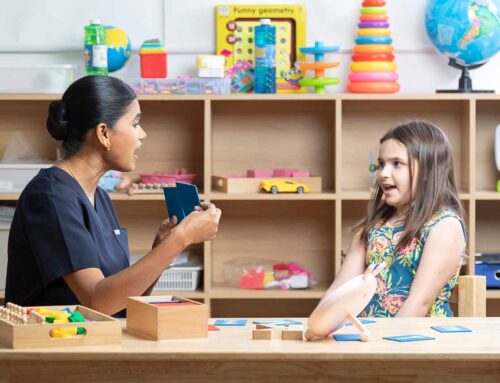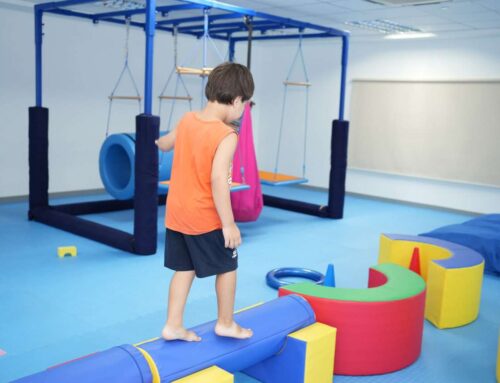Families in Phnom Penh often ask how occupational therapy Phnom Penh services at OrbRom Center turn small wins into big life changes. The short answer: we use structured play, sensory-informed strategies, and family coaching to make daily tasks—like dressing, writing, eating, concentrating, and joining group activities—feel achievable. The long answer is what follows: a clear plan for helping your child grow confident, regulated, and ready for school and life in Cambodia.
What Occupational Therapy Looks Like (And Why It Works)
Unlike a one-size-fits-all program, occupational therapy (OT) adapts to your child’s goals. At OrbRom Center in Phnom Penh, sessions are playful but purposeful. A therapist may set up obstacle courses to improve balance and coordination, use tweezers and putty for hand strength, or guide calming sensory routines before work time. When kids move, touch, carry, climb, and press, they’re building the brain–body connections behind focus, handwriting, and self-care. Curious how senses shape behavior? This quick primer on proprioceptive activities explains why “heavy work” is so calming and organizing for many children.
Signs Your Child May Benefit From OT
If you’re seeing any of the following, a Phnom Penh-based OT evaluation is a smart next step:
-
Frequent meltdowns in noisy or busy places; trouble filtering sound or touch
-
“Clumsy” movement, falls, or difficulty with buttons, zippers, or utensils
-
Fatigue or frustration with handwriting, coloring, or cutting
-
Difficulty staying seated or following multistep routines
-
Challenges with transitions between activities or environments
These are common and treatable. Our Phnom Penh team uses evidence-based tools to map strengths and needs, then designs a plan that fits school, home, and community life.
Inside an OrbRom OT Session: Structure + Joy
A typical session blends regulation, skill-building, and participation:
-
Regulate: Short sensory warm-ups help the nervous system get “just right” for learning. Learn more about creating calm through a well-designed environment in our guide to the benefits of a sensory room.
-
Build: We target fine motor strength, grip, posture, and visual-motor skills through purposeful play. See how everyday play supports strength in our overview of gross motor skills.
-
Apply: We connect gains to daily life—writing a sentence, packing a bag, or finishing a classroom task—so progress shows up where it matters.
Because movement is the engine of development, OT often looks like a mini playground with a plan. That’s not an accident; it’s neuroscience in action.
Partnering With Families and Schools in Phnom Penh
OT isn’t just one hour a week—it’s a toolkit for daily routines. We coach parents on visual schedules, calm-down corners, and simple home “heavy work” ideas. Teachers get practical classroom strategies, from seating and pencil grips to short movement breaks that preserve attention. Want a quick explainer to share? Try our plain-language page on what occupational therapy is, written for busy families and educators.
When to Start: Earlier Is Easier
If you’re debating whether to wait, remember that habits form fast in early childhood. Targeted support now often prevents bigger struggles later. Learn why timely support matters in our short guide to early intervention and inclusive education in Cambodia. If your child is approaching preschool age, consider how OT can smooth the transition—attention, fine motor skills, and self-care are the building blocks of classroom success.
Services at OrbRom Center (Phnom Penh)
-
Occupational Therapy: One-on-one sessions with clear goals, home plans, and measurable progress.
-
Assessments: Developmental and functional evaluations to understand strengths, challenges, and best-fit supports.
-
Preschool Program: A school-readiness environment where OT strategies are embedded into group learning.
Families often tell us their child is “calmer,” “more coordinated,” and “proud of doing it by themselves” after a few weeks of consistent participation. That combination—regulation + skill + confidence—is exactly what sets kids up to thrive in Phnom Penh’s classrooms and communities.
What Happens First
Step one is a conversation. We’ll discuss your child’s history, daily routines, and priorities. Step two is an assessment to establish a baseline and set clear goals. Then we begin a cycle of intervention, practice, and progress checks. Along the way, we share bite-size resources—like how to set up a corner for focus, or when to introduce scissors (our guide to scissor skills is a great place to start). For a broader view of how our center supports communication alongside regulation, see our overview on communication and language.
The Phnom Penh Advantage: Local Support That Listens
Choosing occupational therapy Phnom Penh at OrbRom Center means local expertise that fits your cultural context, school expectations, and family routines. We collaborate directly with Phnom Penh schools, adapt recommendations to your home setup, and help you navigate next steps with clarity. Most importantly, we celebrate your child’s wins—because motivation fuels momentum.
Final thought: If your child is showing signs of sensory overload, motor delays, or daily-living challenges, occupational therapy Phnom Penh at OrbRom Center can help turn struggle into steady progress. Start now, so confidence becomes the habit.
If you are serious about learning, then one-on-one classes at OrbRom Center are the best way to go. Our experienced teachers will help you achieve your academic goals. Contact us TODAY.
Welcome to OrbRom Centre
Choosing learning support for your child is one of the most important decisions you will make, and I welcome you to discover more about why OrbRom is the best option in Phnom Penh.







